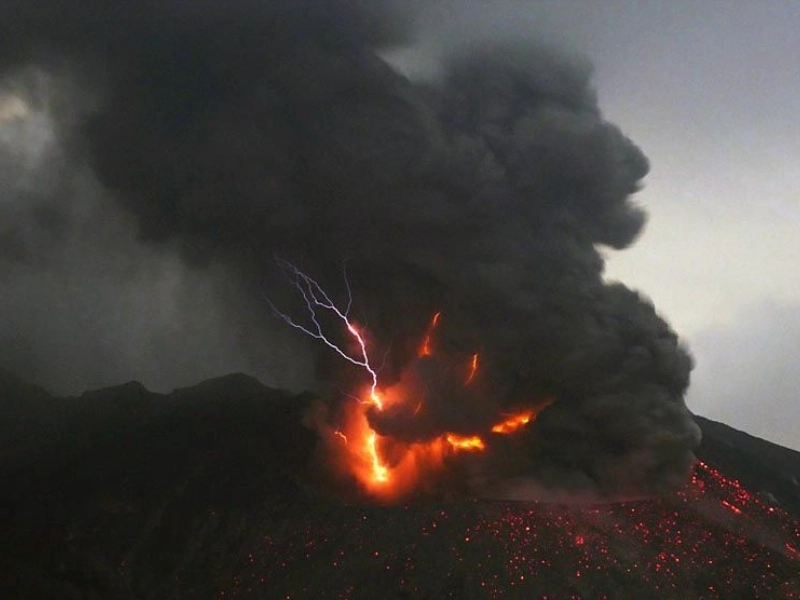Volcanic Lightning: Nature's Electrifying Spectacle
Advertisement
6. The Impact of Volcanic Lightning on the Environment

Advertisement
Although a magnificent natural occurrence, volcanic lightning has major environmental effects that go much beyond its obvious presentation. The surrounding ecology, atmosphere, and even world climate patterns can be immediately affected as well as long-term by the electrical discharges connected with volcanic eruptions. Appreciating the whole extent of volcanic dangers and their possible effects on natural systems as well as human civilisations depends on an awareness of their implications.
The generation of nitrogen oxides is one of the most instantaneous consequences of volcanic lightning on the surroundings. Lightning bolts cause nitrogen and oxygen in the atmosphere to mix and generate different nitrogen oxide compounds when they heat the air to such high temperatures. Then, via precipitation, winds can carry these molecules over large distances. Sometimes this process functions as a natural fertiliser, giving soil and plants necessary nutrients. Excess of these nitrogen molecules, however, can cause local ecosystems to be disrupted and soil acidification results.
Particularly in arid or drought-stricken places, the great heat and electrical energy from volcanic lightning can potentially set off wildfires in surrounding plants. Local flora and fauna can be seriously disrupted by these fires, therefore changing habitats and maybe influencing long-term changes in the composition of the ecosystem. Together with the volcanic ash itself, the smoke and ash from such fires can affect air quality and vision across considerable areas.
More broadly, volcanic lightning is involved in atmospheric chemistry. The electrical discharges ionise air molecules and provide channels for several chemical reactions occurring in the environment. Depending on the altitude at which they occur, this can result in the generation of ozone and other trace gases, which might either help or harm the Earth's protective ozone layer.
Moreover, the electromagnetic pulses produced by volcanic lightning may interfere with electronic devices and radio transmissions. Severe conditions can cause this interference to disturb monitoring systems and emergency response operations, hence raising the possible hazards connected with volcanic eruptions.
With scientists striving to better grasp how these electrical events interact with and affect the larger Earth system, the environmental effects of volcanic lightning remain a subject of active investigation. Improving volcanic hazard assessments and creating more successful plans for reducing the environmental effects of volcanic activity depends on this information.
You May Like
Advertisement

